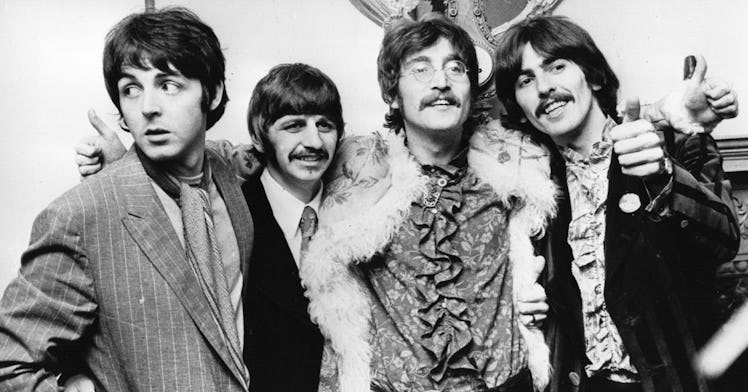Science Says The Beatles Made the Perfect Pop Song, But It’s Not the One You Think
A new study proves that Paul McCartney's foray into ska is a uniquely appealing pop song.

“Ob-La-Di, Ob-La-Da” is not the perfect Beatles song. Half the band—John and George, specifically—hated the White Album track, and its place in the band’s oeuvre is dwarfed by dozens of other songs with more commercial success and literary merit. And yet, a new study finds that it might actually be the closest thing we have to a perfect pop song.
The goal of the study from the Max Planck Institute for Human Cognitive and Brain Sciences in Leipzig and published in Human Biology was to figure out what makes music pleasurable to listen to. They took 745 songs that had reached the Billboard charts between 1958 and 1991 and used machine learning to quantify the expectancy of 80,000 chords.
The songs were then stripped of other aspects of original material like lyrics and melody, presenting to listeners as “auditory stimuli [that] consisted of computer-generated isochronous chord progressions.” The listeners rated the pleasantness of what they were hearing as they listened, and a second experiment used fMRI to analyze their neural activity while listening.
“If the participant was sure what was coming next (low uncertainty) but the song unexpectedly deviated and surprised them, they found that pleasant. However, if the chord progression was harder to predict (high uncertainty) but the actual chord which arrived did not surprise them, they also found the stimuli pleasant, possibly suggesting they had guessed correctly,” a press release announcing the study explained.
“In other words, what is crucial is the dynamic interplay between two temporally dissociable aspects of expectations: the anticipation beforehand, and the surprise afterwards”, says Vincent Cheung, the lead scientist of the study.
“Ob-La-Di, Ob-La-Da,” had the chords that inspired the most pleasure from listeners, with “Hooked on a Feeling” by BJ Thomas and “Invisible Touch” by Genesis close behind.
This article was originally published on